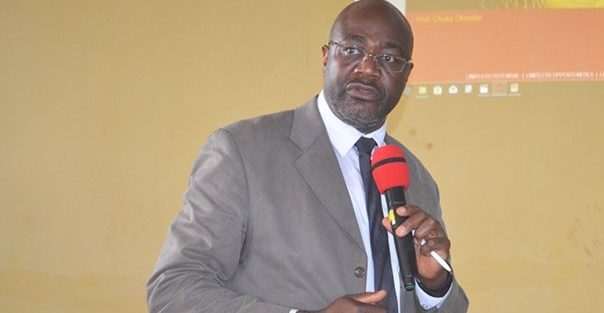With Nigeria is facing several existential challenges, leading Nigerian civil society and international experts have created scenarios that provide a map of possible future events in the country from now up to 2060 covering key sectors such as security, energy transition, agriculture, industrialisation, urban and regional development, education, health, migration, and political participation.
Some of the challenges include unprecedented security threats, declining oil revenue, separatist agitations, large scale youth unemployment, growing crime rates, a wave of migration and brain drain, and severely underfunded health and education systems. At over 200 million now, the country’s population is also expected to reach 400 million by 2050.
Tagged “Which Way Nigeria – Citizen Scenarios to 2060 (CS60)”, the initiative explored the critical uncertainties, key drivers and potential outcomes, relating to the country’s future. Through a combination of advanced scenario creation software and the analyses of local and international experts, it provided a glimpse into some disturbing but very real probabilities for Nigeria’s future.
It was unveiled during a virtual media session on Thursday, January 11, 2023, where the promoters disclosed that CS60 created four possible scenarios for Nigeria in 2060. They are listed to include: Land of Hustle, Green Land, Land of Lost Hope, and Bloodland.
For example, the Green Land scenario projected:
- Inclusive growth driven by enterprise, community and industrialisation,
- Successful transition to green energy,
- Equal access to education,
- Reliable energy supply,
- Resistance when powerful groups and individuals worry of losing their privileges,
- Engagement of citizens is strong, and
- Rapid urbanisation and high stress on services.
“CS60 is the first citizens scenario in Africa and arguably the clearest picture yet of the ways in which our future may unfold when it reaches 100 years of independence in 2060. These scenarios serve as a blueprint for concerned Nigerians to join the conversation and work towards a better future,” disclosed the promoters, that comprise a coalition of over 40 leading Nigerian and international experts.
They added: “CS60 provides citizens the very rare opportunity to create the future that they want, not what officials and barons dictate. The initiative is also geared to spark the entire country to be the change and live the change to create the Nigeria that is a global player, not the hobbling giant of Africa.
“The scenarios are the first chapter in this initiative, the next task will be loose roadmaps, which CSOs will create, that will serve as the basis for what must be done on the way to 2060 to achieve a just, resilient and sustainable Nigeria. With every citizen’s engagement, a more accountable government is in place, which makes a better future more achievable. What can citizens very practically do to engage their government?”
Prof Chukwumerije Okereke, Director of the Centre for Climate Change and Development, AE-FUNAI University and Co-Initiator of CS60, says: “As a climate change researcher, policy advocate and playing an integral role in understanding how Nigeria can transition to a more sustainable economy, these scenarios lay out the stark choices which all 200 million of us will have to face in the coming two generations. I hope that Nigerians take note of the potential futures that we can shape. The challenge is urgent, and we must start immediately.”
Steinar Bryn, seven-time Nobel Peace Prize nominee (Norway): “Functioning democracies must involve their citizens. The private sector and the government often represent the dominant culture in a society. However, citizens represent a society’s variety of cultures. Citizen Scenarios are therefore necessary to modify and expand those developed by the leadership.
“To utilise a society’s full potential, ALL citizens must be mobilised. Inclusive inter-cultural dialog is a prerequisite to create a shared society based on mutual understanding between all citizens, regardless of ethnicity or religion. To create one society for all is the dominant challenge today for most societies.”
Richard Dion, Government and Regional Development expert (Germany): “It has been incredibly inspiring to be involved with CS60, which has brought together so many leading figures in Nigeria to try to create long-term change. Most progress has been made, largely through these CSOs. However, the development tasks facing the country are monumental. In that sense, this is not a short-term fix. It has to be owned and implemented over two generations. But let’s be frank – the potential is enormous. It just takes patience and perseverance day in and day out.”
Victoria Ibezim-Ohaeri, CEO, Spaces for Change: “Effective citizens engagement is central to creating the future we want in Nigeria. It starts by people turning out massively to vote and not selling their votes in the forthcoming presidential elections. There after citizens must be prepared to moblise and engage to hold whatever government that is elected to account.”
Oluseun Onigbinde, Global Director, BudgIT: “All the scenarios suggest that the quality and integrity of the 2023 elections will go a long way in laying the foundation for the future of Nigeria. Therefore, It is vital that Nigerians elect a leader that has impeccable character, not corrupt, can take hard decisions and has the diplomatic skill to unite the country behind a bold vision.”
CS60 is said to be the first citizens scenario in Africa, providing the clearest picture yet of the ways in which Nigeria’s future may unfold when it reaches 100 years of independence in 2060.






